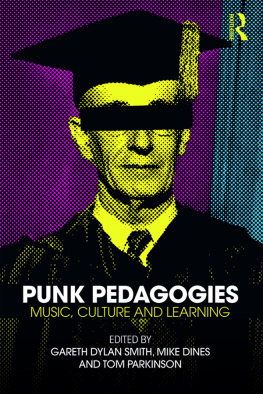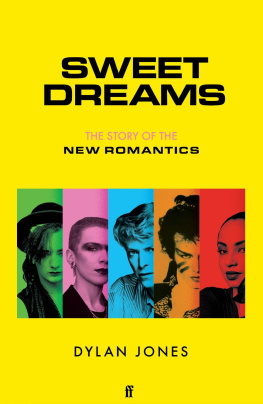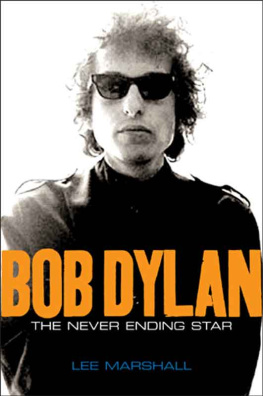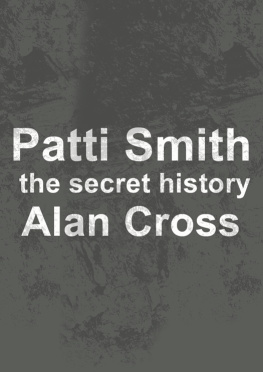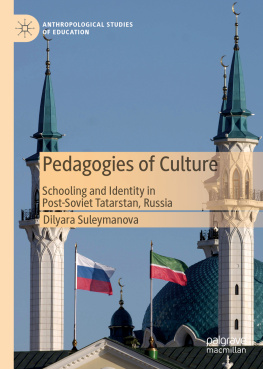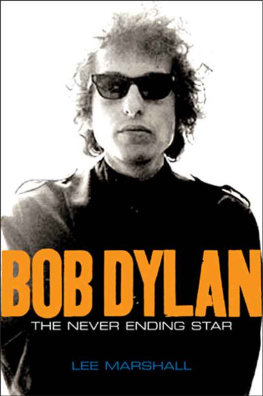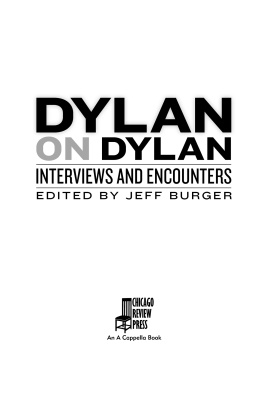Gareth Dylan Smith - Punk Pedagogies : Music, Culture and Learning
Here you can read online Gareth Dylan Smith - Punk Pedagogies : Music, Culture and Learning full text of the book (entire story) in english for free. Download pdf and epub, get meaning, cover and reviews about this ebook. year: 2017, publisher: Taylor & Francis Group, genre: Art. Description of the work, (preface) as well as reviews are available. Best literature library LitArk.com created for fans of good reading and offers a wide selection of genres:
Romance novel
Science fiction
Adventure
Detective
Science
History
Home and family
Prose
Art
Politics
Computer
Non-fiction
Religion
Business
Children
Humor
Choose a favorite category and find really read worthwhile books. Enjoy immersion in the world of imagination, feel the emotions of the characters or learn something new for yourself, make an fascinating discovery.
- Book:Punk Pedagogies : Music, Culture and Learning
- Author:
- Publisher:Taylor & Francis Group
- Genre:
- Year:2017
- Rating:5 / 5
- Favourites:Add to favourites
- Your mark:
- 100
- 1
- 2
- 3
- 4
- 5
Punk Pedagogies : Music, Culture and Learning: summary, description and annotation
We offer to read an annotation, description, summary or preface (depends on what the author of the book "Punk Pedagogies : Music, Culture and Learning" wrote himself). If you haven't found the necessary information about the book — write in the comments, we will try to find it.
Punk Pedagogies : Music, Culture and Learning — read online for free the complete book (whole text) full work
Below is the text of the book, divided by pages. System saving the place of the last page read, allows you to conveniently read the book "Punk Pedagogies : Music, Culture and Learning" online for free, without having to search again every time where you left off. Put a bookmark, and you can go to the page where you finished reading at any time.
Font size:
Interval:
Bookmark:
First published 2018
by Routledge
711 Third Avenue, New York, NY 10017
and by Routledge
2 Park Square, Milton Park, Abingdon, Oxon OX14 4RN
Routledge is an imprint of the Taylor & Francis Group, an informa business
2018 selection and editorial matter, Gareth Dylan Smith, Mike Dines and Tom Parkinson; individual chapters, the contributors
The right of Gareth Dylan Smith, Mike Dines and Tom Parkinson to be identified as the authors of the editorial material, and of the authors for their individual chapters, has been asserted in accordance with sections 77 and 78 of the Copyright, Designs and Patents Act 1988.
All rights reserved. No part of this book may be reprinted or reproduced or utilised in any form or by any electronic, mechanical, or other means, now known or hereafter invented, including photocopying and recording, or in any information storage or retrieval system, without permission in writing from the publishers.
Trademark notice : Product or corporate names may be trademarks or registered trademarks, and are used only for identification and explanation without intent to infringe.
British Library Cataloguing-in-Publication Data
A catalogue record for this book is available from the British Library
Library of Congress Cataloging-in-Publication Data
Names: Smith, Gareth Dylan. | Dines, Michael. | Parkinson, Thomas, 1980
Title: Punk pedagogies : music, culture and learning / Gareth Dylan Smith,
Michael Dines and Thomas Parkinson [and fourteen others].
Description: Abingdon, Oxon; New York, NY : Routledge, 2018. | Includes
bibliographical references and index.
Identifiers: LCCN 2017018358 | ISBN 9781138279872 (hardback) |
ISBN 9781138279889 (pbk.) | ISBN 9781315276250 (ebook)
Subjects: LCSH: EducationPhilosophy. | Punk culture. | Autonomy
(Psychology) | Freedom.
Classification: LCC LB14.7 .P86 2018 | DDC 370.1dc23
LC record available at https://lccn.loc.gov/2017018358
ISBN: 978-1-138-27987-2 (hbk)
ISBN: 978-1-138-27988-9 (pbk)
ISBN: 978-1-315-27625-0 (ebk)
Typeset in Minion
by Apex CoVantage, LLC

About five years ago, I put together a book called Punkademics that featured essays from a number of professors and graduate students who, like myself, had spent a considerable amount of time navigating the seemingly odd terrain between the punk scene and the university. I obviously knew there were a number of punkademics out there when I started the project, but in both the process of editing that collection and, especially, in the years following its publication, I ran across far more fellow travelers than I ever thought existed. In addition to making acquaintances with some of this books editors and contributors, I have met or corresponded with dozens of professors throughout the world who played in bands, wrote zines, started labels, cooked with Food Not Bombs, hopped trains, participated in protests and direct actions with other punks, opened DIY venues and put on punk showsincluding, it turns out, the first one I ever attended when I was fourteen.
As both an aging punk and a veteran teacher, I have long been interested in what punk teaches young people about the pragmatics and ethics associated with making music, art and other kinds of media where profit is not the central organizing principle. To put it baldly, I am fascinated by how punk and hardcore scenes function as pedagogical spaces: spaces in which people can learn to think critically, experiment with new ideas and practices, embrace a participatory view of culture and, ideally, cultivate a sense of self-awareness about punks own hypocrisies and dead ends. Given that many of these lessons are ones that professors spend enormous amounts of time trying to instill in their students, it is not surprising that punk similarly becomes a lens through which one can view the process of education itself. After all, university classrooms are some of the few designated spaces in which young people can also try to make some sense of the crazy world they inhabit while exploring the contours of a secular social space in which human beings are not implicitly reduced to their roles as workers or consumers.
This book brings together a new collection of scholars who grapple with the inter-dynamics of punk and education in their writing and in their classrooms. Punk Pedagogies: Music, Culture and Learning features the voices of teachers and academics who draw inspiration and direction from their varied relationships to punk as a form of music, a set of cultural practices, and a critical vantage point from which to see, think and educate. Their chapters not only provide us with new theoretical issues to discuss and debate, they also give us some effective tools for teaching, as well as rich insights into how the boundaries of the thing we call punk can be pushed, pulled and expanded into new terrain.
Zack Furness
April 2, 2017
Zuleika Beaven teaches in the Music department of Middlesex University, where she leads the MA Arts Management. Her PhD was a study of nascent musician entrepreneurs. For over a decade she has practised and researched the application of experiential learning for creative enterprise and was the recipient of a TQEF-funded award for embedding enterprise learning in the curriculum while at the Arts University Bournemouth.
Russ Bestley is Reader in Graphic Design at the London College of Communication, University of the Arts London. He co-authored and designed several books, including Experimental Layout, Up Against the Wall, Visual Research and The Art of Punk , and has contributed articles to publications including Eye, Zed, Emigr, The National Grid, 360 and Vive Le Rock . He is editor of the journal Punk & Post Punk , and a member of the Punk Scholars Network.
David Vila Diguez is a PhD candidate in the Department of Spanish and Portuguese at Vanderbilt University, with research interests in contemporary Iberian cultures and languages, subcultural and punk studies, and the relationship between contemporary popular culture and political activism. His thesis is on punk and antifascism in the Iberian Peninsula. He plays guitar in bands around Nashville, Galicia and the Basque Country. He is a founding member and editor of Furman 217 magazine (www.furman217.com).
Mike Dines is co-founder of the international Punk Scholars Network. He has published extensively for scholarly and non-scholarly audiences, including the co-edited Tales From the Punkside (2014), Some of Us Scream, Some of Us Shout (2016) and The Aesthetics of Our Anger: Anarcho-Punk, Politics, Music (2016). Forthcoming publications include And All Around Was Darkness (2017), Postgraduate Voices in Punk (2017) and The Punk Reader: Research Transmissions From the Local and the Global (2017).
John Dougan has a PhD in American Studies from the College of William & Mary, and is professor of music business and popular music studies in the Department of Recording Industry at Middle Tennessee State University. He is the author of two books: The Who Sell Out and The Mistakes of Yesterday, The Hopes of Tomorrow: The Story of the Prisonaires .
Zack Furness is Associate Professor of Communications at Pennsylvania State University, Greater Allegheny. He is the author and editor of several books, including Punkademics , and has published various articles and book chapters on bicycling, media, punk music/culture and the NFL. In addition to his academic work, his writing has also appeared in Souciant, Bitch, Punk Planet and Bad Subjects . He has played in punk bands since 1997, most recently in Barons.
Font size:
Interval:
Bookmark:
Similar books «Punk Pedagogies : Music, Culture and Learning»
Look at similar books to Punk Pedagogies : Music, Culture and Learning. We have selected literature similar in name and meaning in the hope of providing readers with more options to find new, interesting, not yet read works.
Discussion, reviews of the book Punk Pedagogies : Music, Culture and Learning and just readers' own opinions. Leave your comments, write what you think about the work, its meaning or the main characters. Specify what exactly you liked and what you didn't like, and why you think so.

